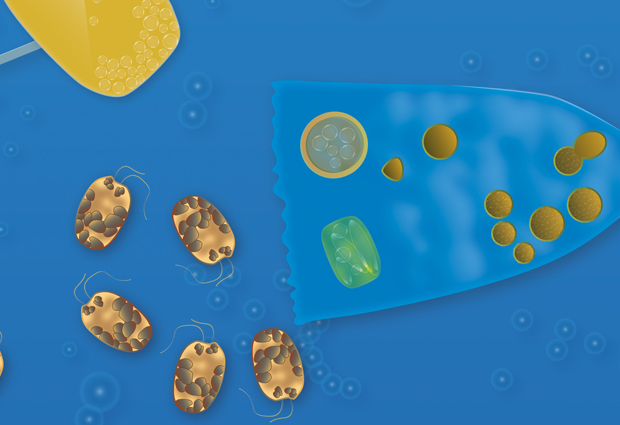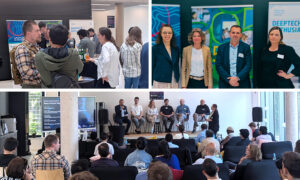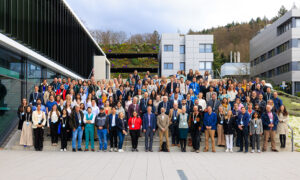
Symposium sails sea of knowledge
At the EMBO|EMBL Symposium: A New Age of Discovery for Aquatic Microeukaryotes, results from three ambitious studies of microscopic sea life will serve as a catalyst for wider discussions and a starting point for future collaborations.

Our knowledge of aquatic microbial eukaryotes – tiny, water-dwelling organisms that, unlike prokaryotes, have cells with inner compartments – is advancing rapidly. Recent years have seen the completion of global marine field campaigns and major new gene content datasets, alongside the advent of new technologies, methods and concepts across the life sciences. To underline the emerging treasure trove of knowledge and new resources, Science recently devoted a special issue to marine plankton.
Three major contributions to the biology, ecology and evolution of these organisms – known as protists – are catapulting the field forward: the Marine Microbial Eukaryote Transcriptome Sequencing Project (MMETSP), the Tara Oceans Expedition, and the Malaspina Expedition. Although these efforts focus on marine organisms, they have provided an unprecedented wealth of new data to the broader protist research communities, and are enabling the development of new concepts about the interactions of protists with viruses, bacteria and archaea.
Chris Bowler, one of the scientific coordinators of the Tara Oceans project, together with Jon Kaye from the Gordon and Betty Moore Foundation, assembled a top-notch committee to organise an event in which the results from these projects could be discussed with a wider scientific audience. The EMBO|EMBL Symposia series was the ideal platform for such an exchange, since it specialises in bringing together diverse communities to discuss forward-looking topics and new developments in the life sciences.
As a result, A New Age of Discovery for Aquatic Microeukaryotes will be held 26–29 January 2016, at the EMBL Advanced Training Centre in Heidelberg. “Our aim is to stimulate interactions between communities that do not necessarily interact otherwise – to disseminate the Tara, MMETSP and Malaspina Expedition results, and to exchange knowledge,” Bowler explains, adding that these projects should serve as starting points for wider discussions. “The meeting is not meant as a progress report or retreat for the participants of the cooperating project teams, nor will it be limited to the research areas covered by these initiatives,” he stresses.
Our aim is to stimulate interactions between communities that do not necessarily interact otherwise.
The goal of the symposium is to increase the impact of the new knowledge generated from these unique datasets, and to foster new collaborations among aquatic microbial ecologists, evolutionary biologists, oceanographers, limnologists, cell and molecular biologists, geneticists and more. With 27 world-renowned speakers, meet-the-speakers sessions and poster presentations all full of cutting-edge research, this will be a meeting to remember.
Related links
- Special edition of Science, 22 May 2015. DOI: 10.1126/science.aac5605
- Marine Microbial Eukaryote Transcriptome Sequencing Project (MMETSP)
- Invited speaker Eric Karsenti wins CNRS gold medal, EMBLetc. 29 September 2015
- Tara Expeditions
- La expedición Malaspina
- Gordon and Betty Moore Foundation
- Follow @EMBLevents and #EESAquatic for more information
- Marine Mysteries


